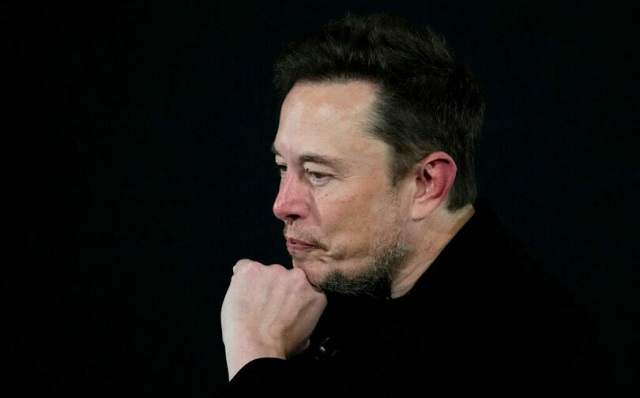Alberta
Alberta won the energy lottery

From the Frontier Centre for Public Policy
Some people blamed a small handful of natural gas plants being out of operation. Which is a greater concern – two of 87 gas fired units being down, or 88 of 88 wind and solar farms being down at the same time?
Alberta won the energy lottery millions of years ago. I’m not talking scratchers, but the Powerball. You know, the big American lottery that every so often is over a billion dollars?
Except Alberta’s winnings are much, much larger than that.
So why is it the weekend of Jan. 12-15, the jurisdiction that has more oil, gas and coal than God, because God gave all his to Alberta, was forced to beg its neighbours if they could spare a megawatt?
Because that’s what happened. It got so desperate the night of Saturday, Jan. 13, that the neighbours did not have another megawatt to spare. The Alberta Electric System Operator (AESO) and the government of Alberta sent out an emergency alert to every cellphone and TV screen in the province, calling on people to shut off everything from stoves to bathroom fans, as well as unplug block heaters and electric vehicles.
The only way this could happen is complete and utter incompetence at the top. It started with Rachel Notley, but Jason Kenney didn’t seem to do much to reverse her moves. Only Danielle Smith seems to have finally said, “No more!”
Former Alberta premier Rachel Notley’s push to get rid of coal as soon as possible and build as much wind and solar is a prime example of incompetence. While most coal plants converted to natural gas, not all units did, and hundreds of megawatts of cheap, reliable power were lost. Meanwhile, in the last two years Alberta’s wind and solar basically doubled, projects that mostly got their start under Notley. And yet there were moments during the weekend where both wind and solar hit zero output, sometimes at same time. Wind and solar’s theoretical capacity of 6,131 megawatts was a big fat zero.
And yet when Notley announced her departure as leader of the NDP on Jan. 16, she put out a video proclaiming the elimination of coal-fired power and kickstarting renewables among her greatest accomplishments.
Some people blamed a small handful of natural gas plants being out of operation. Which is a greater concern – two of 87 gas fired units being down, or 88 of 88 wind and solar farms being down at the same time, as happened the morning of Jan. 14? Indeed, the vast majority of the 87 gas units and 2 coal units were indeed providing nearly all of Alberta’s power throughout the weekend.
Those four days saw the AESO issue four “grid alerts” in a row. The second one was a much closer-run thing. As a last resort, they put all the grid-scale batteries into play, and those batteries were running out of juice after just an hour. The contingency reserve went to effectively zero.
If the province had not issued its emergency alert, the AESO since reported they were within a half hour of calling for rotating blackouts.
Thankfully, it did work. But what about next time?
The next step was rotating blackouts, and, if that didn’t work, major load shedding. And if that wasn’t enough, a replay of Texas, February, 2021, when 246 died. Except there would be more bodies, because it’s a hell of a lot colder here.
Lessons
There are some lessons from that weekend, and especially Saturday:
- Wind and solar totally and utterly fail when we need power the most.
- Do NOT expect your neighbour to be able to help you out. Often they can, and do. But as we saw Jan. 13, when your boat is sinking, your neighbour’s may be sinking faster. This was evident by the small amount of power BC sent Alberta. They routinely send 3x that. Montana was sending effectively nothing. And even though Saskatchewan was maxed out in sending what we had, it was not enough to bail out Alberta. Interties are good in many ways, but they must not be entirely relied upon.
- As a result, each jurisdiction must ensure it has ample supply within its own borders and control. And that includes enough dispatchable power to backfill every single megawatt of wind and solar, plus the possible loss of one of its baseload units. That 4 per cent contingency reserve is really not enough.
- If Alberta did go into rotating blackouts:
- What would have happened if that half hour turned out into half a day, or longer, with the temperature at -35 C as it was in Calgary? How many lives might be on the line? What would the property loss be, from things like frozen pipes?
- Whose head would the public be calling for on Monday morning? Oh wait, there was a fourth grid alert that morning.
- Alberta has more than five million vehicles registered. What would have happened if five million EVs were all plugged in that weekend?
- We cannot, we must not, allow this to happen here in Saskatchewan, or again in Alberta. But yet SaskPower keeps saying we’re going to build an additional 3,000 megawatts of wind and solar. We are on Alberta’s path. Alberta already has 6,131 megawatts of wind and solar. How’s that working out for them? Friday night – 6 megawatts. Saturday night – 90. Sunday morning, zero.
Fossil fuels account for up to 94 per cent of Alberta’s and 89 per cent of Saskatchewan’s power on any given day. We cannot, must not, allow ourselves to think any amount of wind and solar can keep us alive when the temperatures hit -35 C. That weekend in Alberta proved it.
Brian Zinchuk is editor an owner of Pipeline Online and occasional contributor to the Frontier Centre for Public Policy. He can be reached at [email protected].
Alberta
Red Deer Hospital Lottery – Second Chance Early Bird Prize!!!

|
|
|
|
|
Alberta
Parent and gender dysphoria groups granted intervenor status in New Brunswick school policy case
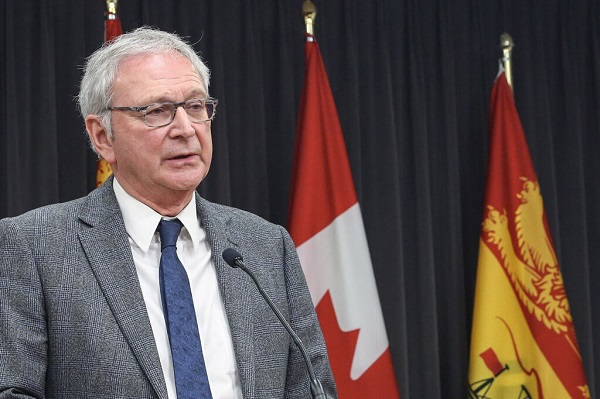
News release from the Justice Centre for Constitutional Freedoms
The Justice Centre for Constitutional Freedoms is pleased to announce that two groups, Gender Dysphoria Alliance and Our Duty Canada, have been jointly granted intervenor status in a constitutional challenge to a New Brunswick education policy. The policy requires that parents be notified when their child intends to undergo a gender transition by using a different name and pronouns at school.
On August 17, 2020, the New Brunswick government created Policy 713, which prohibited teachers from informing parents that their child had adopted a new name or pronouns at school (unless the child consented to such disclosure).
On June 8, 2023, the government changed the policy to require that parents of students under 16 years of age be notified by the school before the formal use of a different name or pronoun. “Formal” refers to the use of names and pronouns in the classroom and in school records.
The change to Policy 713 brought a firestorm of criticism and media coverage because it was the first of its kind in Canada to support parental rights on this issue. New Brunswick Premier Blaine Higgs stated that he believes he has the support of parents in the province on this issue.
The Canadian Civil Liberties Association (CCLA) brought a constitutional challenge against the Province of New Brunswick as represented by the Minister of Education and Early Childhood Development, on September 6, 2023. The CCLA argues that Policy 713 infringes the students’ rights to freedom of expression, to equality, and to life, liberty and security of the person.
“The Canadian Civil Liberties Association has filed a court challenge against the right of parents to be fully informed about what is happening with their own children at school,” stated John Carpay, President of the Justice Centre.
“The Supreme Court of Canada explained in B.(R.) v. Children’s Aid Society of Metropolitan Toronto that the parental interest in bringing up, nurturing and caring for a child, including medical care and moral upbringing, is an individual interest of fundamental importance to our society,” continued John Carpay.
On May 2, 2024, Justice Richard Petrie of the New Brunswick Court of King’s Bench granted intervener status to two groups: Gender Dysphoria Alliance is comprised of transsexual adults who seek to promote an evidence-based approach to gender dysphoria. Our Duty Canada is a peer support network for parents of children struggling with gender dysphoria and transgender ideation. As intervenors, they now have the right to present evidence to the court. The Justice Centre is providing for the legal representation of both groups, which seek to uphold the constitutionality of the amended Policy 713.
Prior to granting intervenor status, on March 5, 2024, Justice Petrie ordered that any proposed intervenors file the evidence they intend to present.
Gender Dysphoria Alliance and Our Duty Canada submitted the following testimonies as evidence:
- The written testimony of a New Brunswick mother whose child underwent a social transition in school, about which she was not informed;
- The written testimony of a young woman from Alberta who began to adopt new pronouns at school without her parents’ knowledge; she ultimately reversed course (detransitioned) after her parents became aware of her situation and were able to assist her;
- The written testimony of the young woman’s father.
Karin Litzcke of Our Duty Canada says, “[Our] members are pleased to have an opportunity to contribute to the development of jurisprudence in this area. What has happened to us could happen to any parents under policies that promote secrecy from families. We are grateful to the Justice Centre for its assistance in advocating for the interests of children and parents in court.”
Speaking on behalf of Gender Dysphoria Alliance, Aaron Kimberly says, “The Gender Dysphoria Alliance is pleased with the decision to grant us intervention status in this case. We believe New Brunswick’s policy is an important safeguarding measure for children experiencing gender incongruence, since we know that most kids with this experience turn out to be gay or lesbian, not trans. Prematurely labelling kids “trans” and socially transitioning them is a psychosocial intervention that risks putting pre-gay kids onto an unnecessary medical pathway.”
Hatim Kheir, lawyer for both groups, says, “The Supreme Court has affirmed that parents in Canada have the right to guide the moral upbringing of their children. This case provides an opportunity for the Court to apply those rights to issues surrounding gender which are becoming increasingly relevant in our society.”
-

 conflict1 day ago
conflict1 day ago‘It Makes No Sense’: Experts Puzzled By Biden Admin’s Claim That Rafah Invasion Wouldn’t Help Israel Defeat Hamas
-

 Opinion20 hours ago
Opinion20 hours agoCanada’s fertility, marriage rates plummet to record lows: report
-

 City of Red Deer14 hours ago
City of Red Deer14 hours agoCity Council paving the way for more house suites, backyard suites, tiny homes, and duplexes
-

 Brownstone Institute2 days ago
Brownstone Institute2 days agoMedical Elites’ Disgrace Over Ivermectin
-
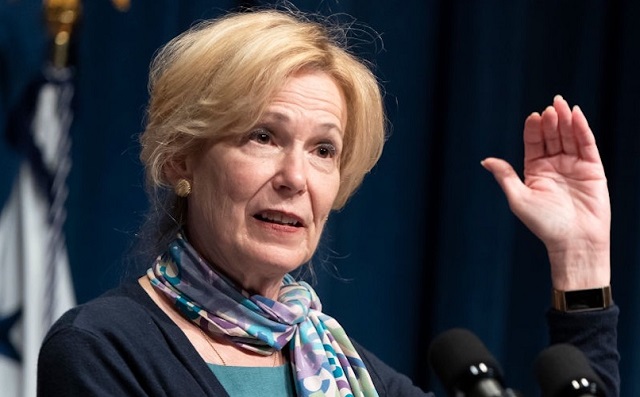
 COVID-1923 hours ago
COVID-1923 hours agoFormer COVID coordinator Deborah Birx now admits jabs could have injured ‘thousands’
-

 Bruce Dowbiggin1 day ago
Bruce Dowbiggin1 day agoWhy Do The Same Few Always Get The Best Sports Scoops?
-
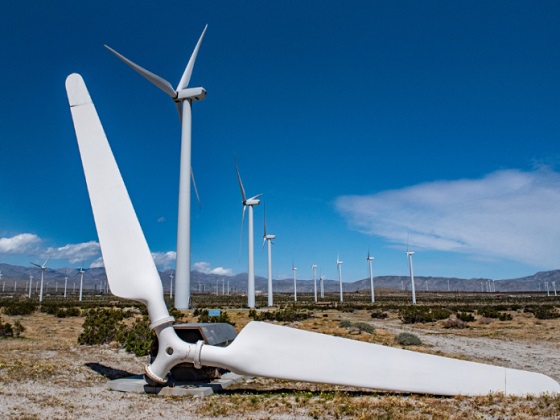
 Energy1 day ago
Energy1 day agoBuckle Up for Summer Blackouts: Wind Is Already Failing Texas in Spring
-
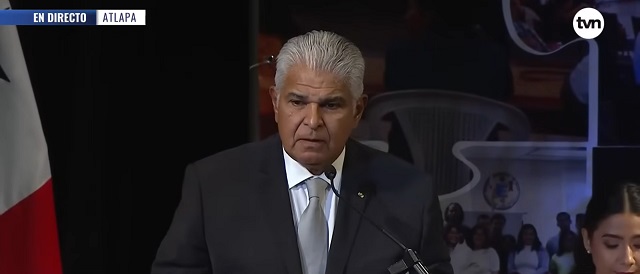
 illegal immigration14 hours ago
illegal immigration14 hours agoPanama’s Incoming President Wants To Shut Down His Country’s Most Treacherous Route For Migrants — But Will It Work?









